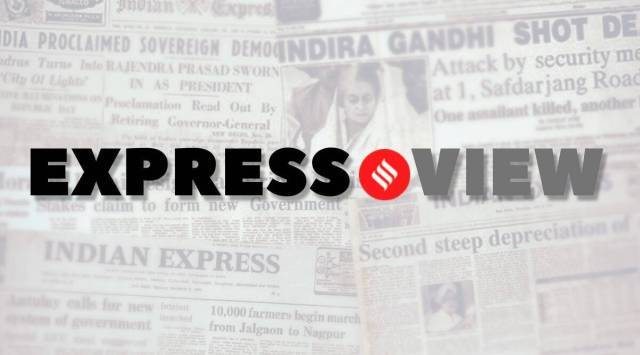Opinion Express View: R Praggnanandhaa
The World Cup final defeat could be a stepping stone to the making of a world champion
 In the past, he has beaten Carlsen himself thrice in the shorter versions of the game; he had an impressive run in the Chess Olympiad too, beating some of the established Grandmasters
In the past, he has beaten Carlsen himself thrice in the shorter versions of the game; he had an impressive run in the Chess Olympiad too, beating some of the established Grandmasters The silver medal in the Chess World Cup did not glitter like gold for 18-year-old R Praggnanandhaa. He hid his disappointment, though the words of consolation that he lost to arguably the greatest chess player of all time, Magnus Carlsen, would have rung hollow. Only he could fathom the hurt of losing the final after beating a raft of big shots and stretching the unflappable Norwegian to the tiebreakers. The second-place finish puts him in Candidates Tournament, the winner of which will wrestle for the World Championship title with Ding Liren, the throne’s latest occupant.
It was a coming-of-age on the big stage for the youngster from Chennai. His immense potential was spotted at so young an age that he was predestined to scale great heights. Block by block, he was making progress and recently breached the 2700 elo points barrier. In the past, he has beaten Carlsen himself thrice in the shorter versions of the game; he had an impressive run in the Chess Olympiad too, beating some of the established Grandmasters. But it is here that he came on his own, when he demonstrated the dizzying depths of his game. He is the youngest-ever finalist in this tournament; he was also lowest seeded (World No 31), to reach its final. En route, he defeated some of the finest in the business, scalping World No 2 and 3 Hikaru Nakamura and Fabiano Caruana, matching them, move for move. He showed his adeptness in the classical version, whereas previously he was considered stronger in the rapid and blitz forms.
Together with fellow teenager D Gukesh, Praggnanandhaa has whipped up a second chess moment for India, after the peak years of Viswanthan Anand. The impact of his accomplishments could be more far-reaching, in that he does not belong to an affluent family nor is from a dominant caste. His parents are not from a science or medical background, and he did not train abroad. That he is still a work in progress brightens the future of Indian chess.






